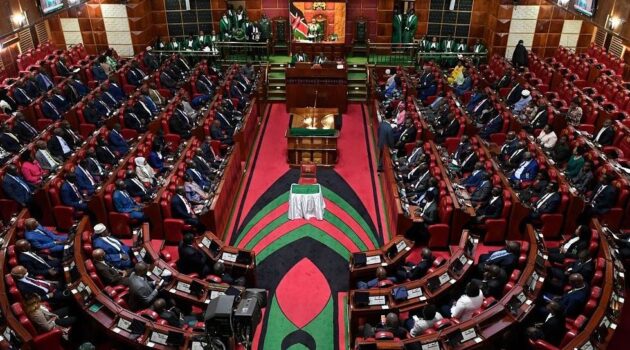
MP Manduku intensifies calls for Parliament dissolution after Financial Bill protests » Capital News
NAIROBI, Kenya June 4 – – Nyaribari Masaba Member of Parliament Daniel Manduku has intensified his calls for the dissolution of parliament, citing a significant loss of legitimacy among the members of the public.
Speaking during the Capital FM Breakfast Show on Wednesday, Manduku emphasized that Kenyans have lost trust in the legislative body, necessitating a fresh mandate from the electorate.
“The public has lost trust in us, and that’s why we can’t go home; we are all in Nairobi. The fact remains that parliament was overrun by the people who are the ultimate owners of the power,” Manduku stated.
Despite his calls for dissolution, Manduku clarified that he would not step aside himself, arguing that his seat would simply be declared vacant and filled by another individual, thereby negating the purpose of his call for a parliamentary reset.
Manduku, a first-time lawmaker, pointed to the events of June 25 as a clear indication of the public’s discontent. On that day, youthful protesters overran parliament following the passage of the contentious 2024 Finance Bill by the August House. The protests have since resulted in at least 25 deaths, with 11 occurring during the parliament invasion.
The protests, sparked by the passage of the Finance Bill, have escalated into widespread unrest, with demonstrators expressing frustration over increased taxation and economic hardships. The demonstrations have turned violent, leading to significant property damage and the tragic loss of lives.
President William Ruto has refrained from assenting to the bill in light of the widespread unrest. Under Kenya’s constitution, promulgated in 2010, the head of state holds the power to dissolve parliament if it fails to fulfill its constitutional mandate.
Manduku’s stance reflects a growing sentiment among some lawmakers and citizens that the current parliament is out of touch with the electorate’s needs and concerns. The ongoing protests and the government’s response to them have further fueled public dissatisfaction, leading to calls for significant political change.
